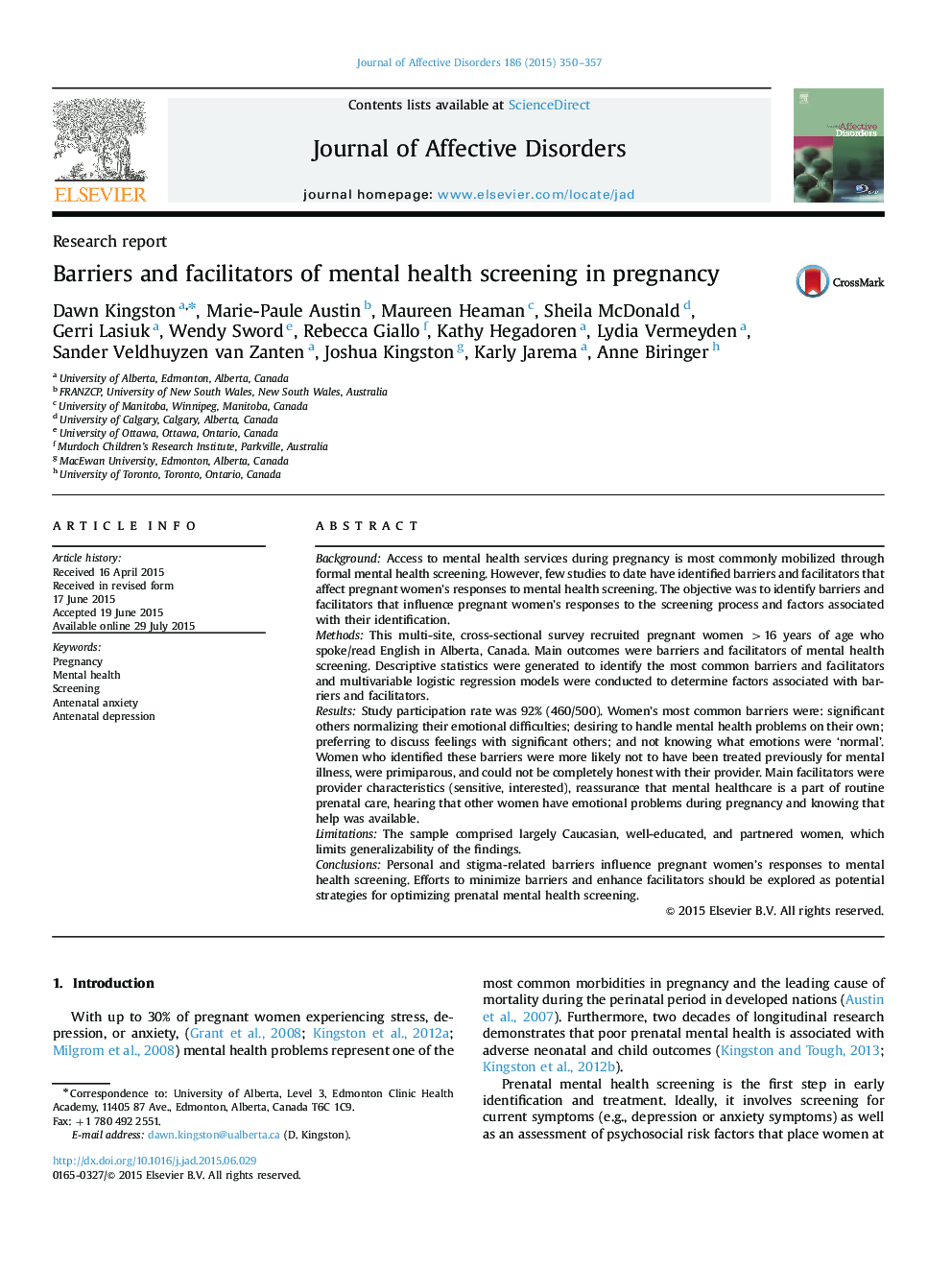| کد مقاله | کد نشریه | سال انتشار | مقاله انگلیسی | نسخه تمام متن |
|---|---|---|---|---|
| 6231220 | 1608139 | 2015 | 8 صفحه PDF | دانلود رایگان |
- We surveyed pregnant women about barriers and facilitators to mental health screening.
- Main barriers were personal, not system-related.
- Most common barrier of screening was women's significant others normalizing symptoms.
- Women with previous mental health history were less likely to endorse barriers to screening.
- Main facilitators of the screening process related to quality of provider relationship.
BackgroundAccess to mental health services during pregnancy is most commonly mobilized through formal mental health screening. However, few studies to date have identified barriers and facilitators that affect pregnant women's responses to mental health screening. The objective was to identify barriers and facilitators that influence pregnant women's responses to the screening process and factors associated with their identification.MethodsThis multi-site, cross-sectional survey recruited pregnant women >16 years of age who spoke/read English in Alberta, Canada. Main outcomes were barriers and facilitators of mental health screening. Descriptive statistics were generated to identify the most common barriers and facilitators and multivariable logistic regression models were conducted to determine factors associated with barriers and facilitators.ResultsStudy participation rate was 92% (460/500). Women's most common barriers were: significant others normalizing their emotional difficulties; desiring to handle mental health problems on their own; preferring to discuss feelings with significant others; and not knowing what emotions were 'normal'. Women who identified these barriers were more likely not to have been treated previously for mental illness, were primiparous, and could not be completely honest with their provider. Main facilitators were provider characteristics (sensitive, interested), reassurance that mental healthcare is a part of routine prenatal care, hearing that other women have emotional problems during pregnancy and knowing that help was available.LimitationsThe sample comprised largely Caucasian, well-educated, and partnered women, which limits generalizability of the findings.ConclusionsPersonal and stigma-related barriers influence pregnant women's responses to mental health screening. Efforts to minimize barriers and enhance facilitators should be explored as potential strategies for optimizing prenatal mental health screening.
Journal: Journal of Affective Disorders - Volume 186, 1 November 2015, Pages 350-357
